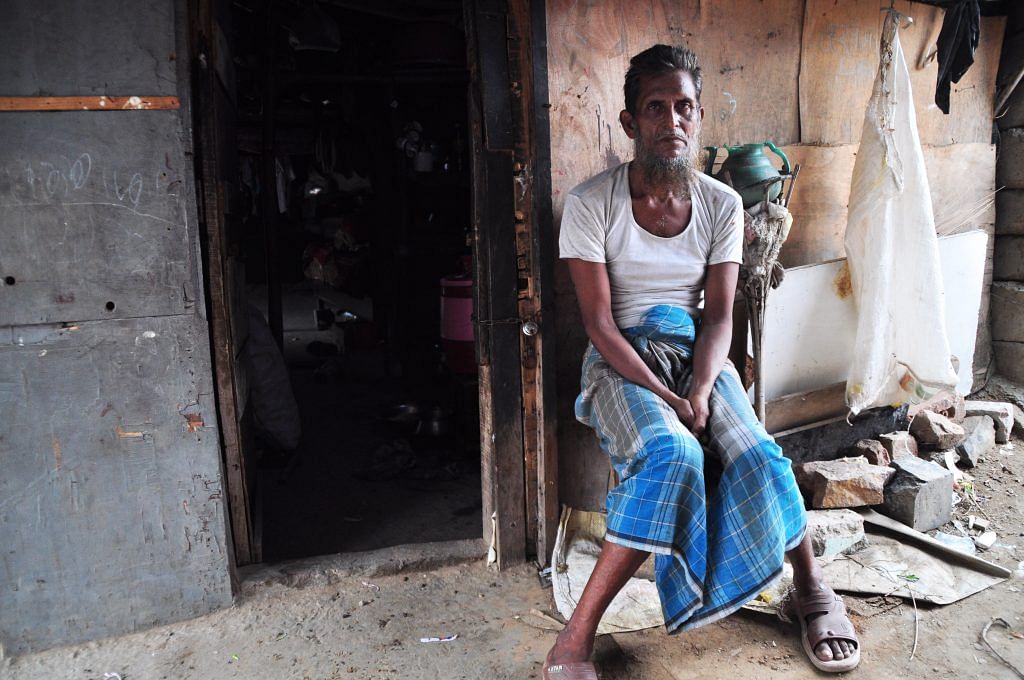Narendra Modi’s government cannot afford to put the Rohingya issue on the back burner.
Amidst serious issues like corruption in the Rafale deal and farmers’ agitation, the government has overlooked the fact that thousands of Rohingya Muslims have reportedly travelled from the northeast to Kerala and Tamil Nadu. Some of them travelled by trains to reach the southern states. Prime Minister Narendra Modi’s government cannot afford to put this potential security threat on the back burner.
In fact, in a rare but commendable action, the principal chief security commissioner of Railway Protection Force (RPF) has sent a “secret” note to all divisional commissioners. He alerted them about the mass movement of illegal Rohingya Muslim immigrants from West Bengal, Odisha, Assam and other northeastern states to south India, by as many as 14 long-distance trains. The RPF has been keeping a vigil on these trains to track migrant labourers and also the mass movement of people from the northeast, especially after the panic-stricken exodus from Bengaluru in 2012.
Also read: Supreme Court refuses to stop deportation of 7 Rohingya Muslims
“All Rohingyas are travelling in groups along with their families… Officers and staff under your control may be sensitised about their movement. If they are found in trains, they may be handed over to the police having jurisdiction for further action. Action taken report may be sent to this office at the earliest for the perusal of the Principal Chief Security Commissioner of the RPF (PCSC),” the communication directed.
The home ministry should be concerned about this movement of Rohingyas in the country. Once they settle down in these areas it will be difficult, rather impossible, to identify them, not to speak of deporting. The Rohingya Muslims speak fluent Bengali and Hindi and it would be easier for them to mingle with the daily wage earners in these states and be identified as workers from Bihar, West Bengal or Odisha. Many people from northeast usually migrate to the southern states for employment.
In this background, it is shocking as to how and why the home ministry could not localise the Rohingya Muslims before they could disperse. Earlier, the issue of Rohingya Muslim settlements in Narwal, a suburb of Jammu, was widely reported. While Kashmiri Hindus find it impossible to settle in the region where they belong to, it is ironical that thousands of Rohingya Muslims could not only settle in Jammu but find jobs and get identity cards made too. The issue was raised even by a section of the local BJP unit but was cleverly brushed under the carpet by the state administration under the PDP-BJP coalition government.
Also read: Facebook has taken a stronger stand than Modi govt on Rohingya issue
Rohingya Muslims, Bengali speaking and hence considered to be of Bengali origin, mostly living in Rakhine province in the Arakan region of Myanmar have been denied citizenship in their own country. This is like many Indians from Bihar who were indentured labourers working in Bangladesh’s Choudanga district. Sometime in 2014, the Myanmar government was considering a citizenship plan for some of the Rohingyas provided they reconsider their ethnicity. This was probably a reaction to international pressure but did not work out as Rohingyas refused.
While the Rohingya Muslims have drawn international attention to the repression they are facing at the hands of Myanmar army, the government and the army have a very different tale to tell. The UN Secretary General Antonio Guterres, who is currently in India, has termed the Rohingyas as the most persecuted community in the world and strongly advocated Indian intervention in sorting out the issue by supporting Bangladesh government. After his visit to Cox Bazar camps in Bangladesh, he had warned of the nexus between the radical elements among the Rohingyas and the terrorist groups looking to recruit mercenaries. In fact, the government of India had been warned by security experts of the potential dangers of these elements infiltrating the refugee camps and posing a serious security threat to all three countries. Myanmar reportedly found some of these radical elements indulging in looting, arson and vandalising Buddhist places of worship besides attacking Buddhist monks. There were reports of them attacking Hindus in Bangladesh as well.
Also read: Gutted Delhi camp puts spotlight on sub-human living conditions of Rohingyas in India
Meanwhile, Dhaka has slowed down the Bhasan Char project that it was building to settle these refugees even as the international aid agencies and Rohingya representatives have rejected the proposal saying the area is flood prone and inaccessible.
It is perilous for New Delhi to allow these refugees to travel all over the country at will and mingle with the local population. Instead of outsourcing the vigil to RPF and state governments, the home ministry should create a special purpose vehicle under the supervision of the National Security Council Secretariat to facilitate swift action and also accept responsibility for internal security.
With important states going to polls and the 2019 election approaching, it will be too risky to allow anti-social elements to plot social and communal conflagration of any scale.
The author is former editor of ‘Organiser’.
